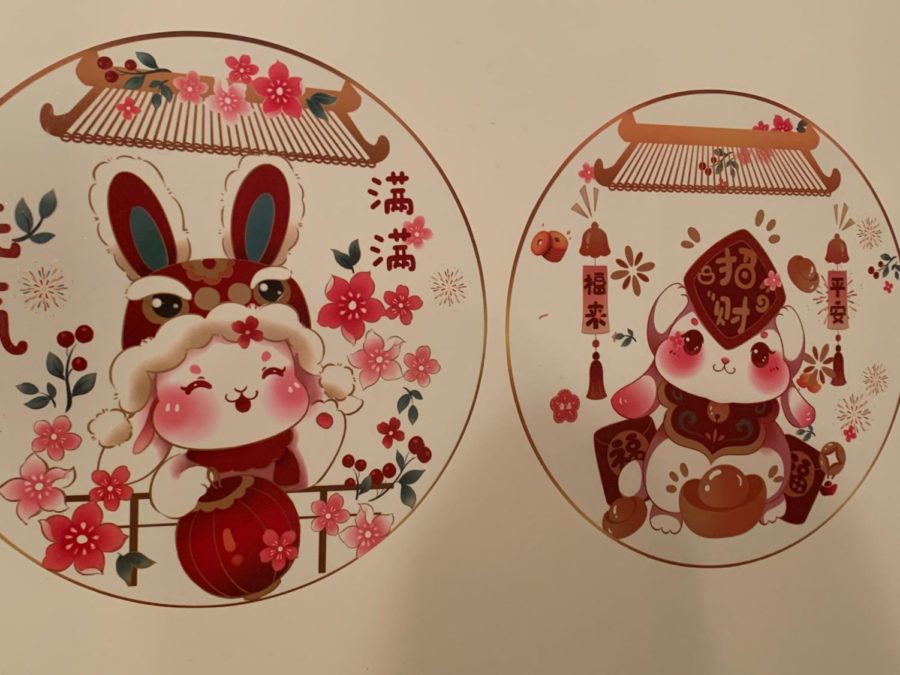Lunar New Year
January 25, 2023
Every year I anticipate the day where I wake up to red decorations lined up on the walls and the chaotic whirring of the stoves brewing up a feast. Where I would stumble downstairs to see my sister and parents wechatting my relatives in China, having “新年快了(happy new year)!” be the first thing to leave their mouths as if it was saying “hello.”
This special day is called Lunar New Year. The date of Lunar New Year falls on the 2nd new moon after the winter solstice, usually between Jan. 21 and Feb. 20. It’s a tradition where you celebrate the coming year and all the good fortune and luck tagging along with it. Throughout my whole life of celebrating this annual event, I always remember the steamed white fish drowning in soy sauce and chunks of minced garlic, as well as a myriad of videos recapping the year made by my grandma.
While this is how my family celebrates, every person, household, and country has their own different and unique customs. Here are how some people in the Clague community celebrate Lunar New Year.
7th grader, Katie Hu celebrates Lunar New Year by having a big dinner composed of fish and dumplings where not only her family but other invited guests can feast on. She also dresses her house in red stickers.
“We decorated our house with decorations like red flowers and bunny stickers since it’s the bunny New Year,” Hu explained.
Eighth grader Mia Lin also celebrates.
“Lunar New Year is [an] important tradition to my family since it’s a time where we celebrate and talk over food,” Lin said.
She enjoys having hot pot with her family where she can eat beef or lamb in a chicken broth soup base. Lin also receives red envelopes from her grandma, which are filled with money, as it represents good fortune and luck for the coming year.
Yuan Laoshi or the Chinese teacher of Clague says celebrating Lunar New Year is mainly based on spending it with your relatives, “It’s a family gathering.” Most commonly the Lunar New Year is spent making dumplings and 汤圆 (tangyuan, a glutinous rice ball filled with sweet sesame and peanut puree) as family activities.
6th grader, Lucas Ha celebrates Lunar New Year by receiving money from his relatives, which symbolizes good luck for the coming year. What also symbolizes good luck is eating tteokguk (떡국) on Lunar New Year, which is sliced rice cakes in a broth topped with meat, thinly sliced cooked egg, and sesame oil. Eating tteokguk also represents a fresh start.
“In [the] Lunar New Year, it’s an opportunity to start fresh, you don’t have to worry about your mistakes anymore,” Ha said.
Though customs vary from family to family, most who celebrate can agree that the loud chatter of family and friends, familiar food eaten every year, and the nostalgia you feel are constants for this special and annual celebration.
And as my Chinese relatives say, “万事如意 (may everything go well for you)! ”








